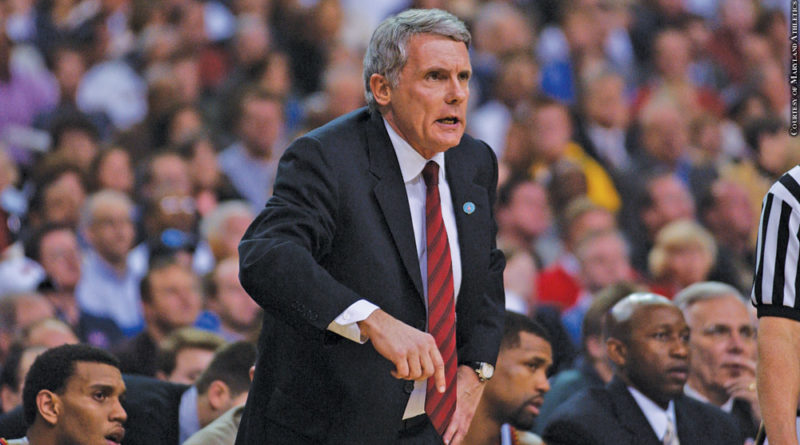I wasn’t in Atlanta the night Maryland won the 2002 national championship.
Despite being a lifelong Maryland basketball fan (you guys, I was OBSESSED with Kevin McClinton as a kid), I was a freshman at UMBC at the time. I had some buddies sneak me into the game watch event for Maryland students at Cole Field House that night and then reveled in College Park until the next morning. At one point my friend Josh looked at me and said, “This was amazing, but I really wish we would have just driven to Atlanta.”
While I knew he was right, my response was quite genuine.
“Don’t worry, man. There will be more to come. This is just the beginning. We’ll be at the next one.”
If there ever is another one, I might need your help in trying to track down Josh.
There’s something a bit awkward about celebrating the 20th anniversary of Maryland’s title team. It takes nothing away from that incredible team and its remarkable accomplishments and the amazing story of how the program bounced back from an incredibly dark period in the late ’80s to reach such an amazing height. It’s just that … this isn’t exactly how the next two decades were supposed to go.
For example, the University of Connecticut celebrated the 20th anniversary of its first NCAA championship in 2019. And UConn might not have even remembered to celebrate the 15th anniversary of its second NCAA title or the fifth anniversary of its FOURTH NCAA title that very same year.
And in the hours after Gary Williams and Co. cut down the nets, that’s about what Maryland fans expected their next 20 years would be like. They had a wildly successful coach, a brand new arena complete with corporate suites set to open on campus the following season, three more players en route to the NBA and every reason to think recruiting would get much easier in the coming years.
And yet … here we are. Why?
There’s no individual answer to the question, of course. The most common response from fans is, unsurprisingly, to blame the coaches. “Gary thought he didn’t have to work as hard to get recruits after the championship,” say some. “Gary was unwilling to get involved with the unsavory aspects of recruiting,” complain others. “Mark Turgeon just was never good enough for the job,” say, well, most.
That’s how college athletics works, of course. Someone might attempt to defend a coach by shifting blame to the players. But ultimately the coaches, of course, handpicked those players.
Which doesn’t mean Gary Williams knew that Chris McCray would lose academic eligibility or that John Gilchrist would quit on the team during the ACC tournament or that McDonald’s All-American Mike Jones would never improve as a defender or that Korie Lucious would single-handedly ruin his last good chance at a return to the Final Four.
Some Turgeon defenders would point out that the program’s demise actually began under Williams and that he shouldn’t have been judged by a championship standard but instead by the standard of the four total NCAA Tournament wins the program recorded during Williams’ final eight seasons. They’ve never necessarily been wrong.
Those closest to the program would argue the problem has gone beyond the coaches. There was, of course, quite public friction between Williams and former athletic director Debbie Yow in the years after the title run. The school didn’t always make the type of concessions to athletes that the coaches would have liked (changing class schedules, working to help get certain players eligible, etc.). And, you know, there’s that whole thing where they’re ONE OF ONLY THREE power conference teams without a practice facility!
We’ll see if the next coach can return the program to a championship standard. And as frustrating as the last 20 years have been, the reflection on where the program has gone only strengthens my appreciation for what this group accomplished that night in Atlanta. Building a championship program seemed easy at the time because Williams had done such a remarkable job during those 13 years.
But for the overwhelming majority of college basketball programs, competing for championships is very difficult. It requires special players like Juan Dixon and Lonny Baxter and Steve Blake and Chris Wilcox and an incredible coach. I’m grateful for the memories this group gave us that live on two decades later, and much like Williams, I have an even greater appreciation for them now than I did then.
Photo Credit: Courtesy of Maryland Athletics
Issue 273: February/March 2022
Originally published Feb. 16, 2022

